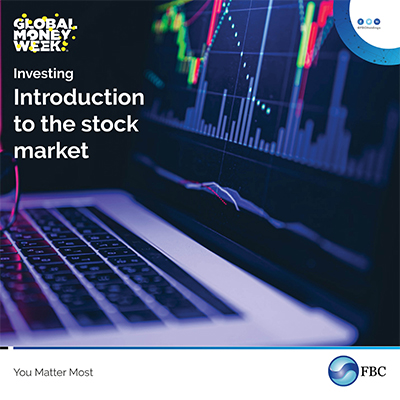
On this edition, we focus on breaking down some of the frequently used terms/words relating to the stock market.
Stocks
Stocks are a type of security that gives stockholders a share of ownership in a company. They offer investors the greatest potential for growth over the long term.
But stock prices move down as well as up. There’s no guarantee that the company whose stock you hold will grow and do well, so you can lose money you invest in stocks.
The risks of stock holdings can be offset in part by investing in a number of different stocks. Investing in other kinds of assets that are not stocks, such as bonds, is another way to offset some of the risks of owning stocks.
Bonds
Bonds are a way for governments and companies to borrow money. In return, the borrower promises to pay the investor a specific amount of interest for a specified length of time and to repay the loan on its maturity.
Bonds can provide a means of preserving capital and earning a predictable return. Bond investments provide steady streams of income from interest payments prior to maturity.
As with any investment, bonds have risks. Bond investors are relying on the issuer’s ability to pay interest and repay principal. If the issuer has financial problems or defaults, the bondholders could wind up with losses. Also, inflation risk is another risk investors have to face. It reduces purchasing power, which is a risk for investors receiving a fixed rate of interest.
Conservatism Bias
This is a bias where investors rely too heavily on their prior beliefs such as their view on the value of a company, and don't update those beliefs sufficiently when faced with relevant new information. Conservatism leads investors to under-react.
When conservatism-biased investors do react to new information, they often do so too slowly. Conservatism can relate to an underlying difficulty in processing new information. Because people experience mental stress when presented with complex data, an easy option is to simply stick to a prior belief.
Experts say that “Conservatism can prevent good decisions from being made, and investors need to remain mindful of any propensities they might exhibit that make them cling to old views and react slowly toward promising, emerging developments.”
Bubble
This occurs when there is a surge in prices on investments or real estate driven by excitement that's not grounded in reality. Bubbles occur when investors begin to buy assets without considering their real economic value, and end in a sharp price decline.
It is best to avoid trying to time the market during a bubble. Instead, you should take steps to protect yourself during the bubble.
To protect yourself, buy shares of strong businesses that have good fundamentals. Choose companies that generate real profits and that have attractive returns on equity. The companies should have low to moderate debt-to-equity ratios and should also show improvements in their gross profit margins.
Dividend income
This is the investor's share of a company's profits, given to him or her as a part-owner of the company. Well-established companies typically pay higher dividends than early-stage companies, as mature firms tend to have more stable, predictable earnings and fewer investment opportunities than growth-oriented companies. As a result, established firms often return more cash to their stockholders in the form of dividends.
Take the time to read more around investing to grow your income.
Build your future. Be smart about money.
#GlobalMoneyWeek

